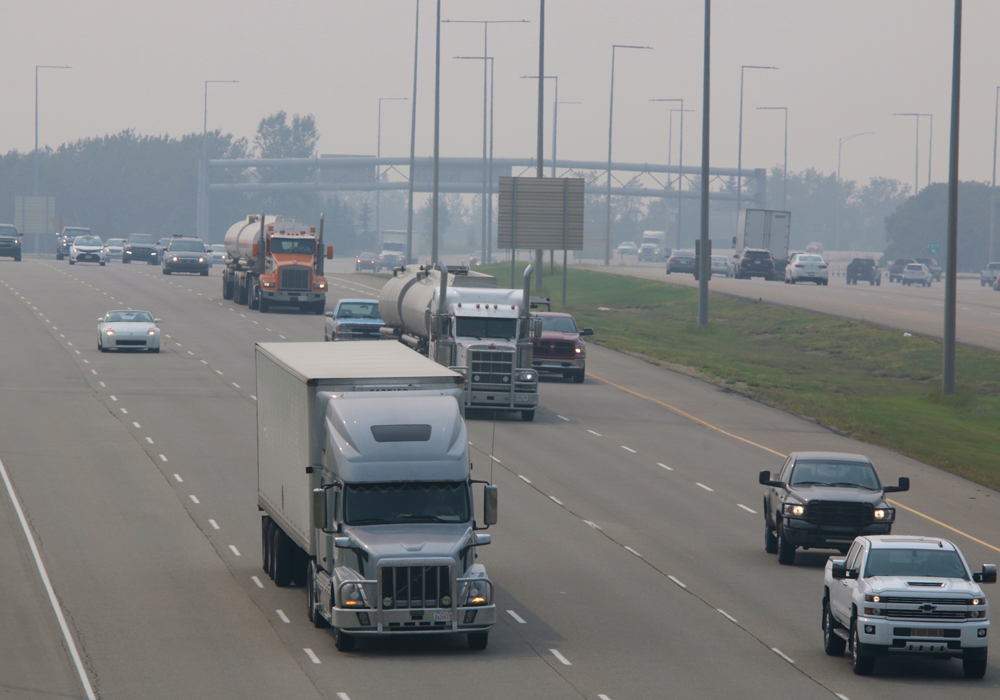New commercial truck driver licensing costs for training, as they relate to agriculture, should be paid for by everyone, not just farmers.
The movement for change in how commercial drivers are licensed is driven by a tragic accident that focused the public’s attention on the potential risks that large commercial trucks can pose.
Those risks have always existed but the imperative to deal with them, at least in Western Canada, has not.
After the tragedy of the Humboldt Broncos bus crash that killed 16 and injured 13 when it collided with a semi-trailer on April 6, legislators have moved to improve safety. That’s appropriate, but safety is everyone’s concern so everyone should be willing to pay for it.
Read Also

Proactive approach best bet with looming catastrophes
The Pan-Canadian Action Plan on African swine fever has been developed to avoid the worst case scenario — a total loss ofmarket access.
Saskatchewan has a program that will allow new, farm semi-truck drivers to have an F rating on their licenses, avoiding the need for certified training but including a testing requirement.
Manitoba hasn’t announced its plan, but Keystone Agricultural Producers is lobbying for something similar to Saskatchewan’s model. Alberta says agriculture is covered with existing driver-licensing for tandem, tridem and single axle trucks but new Class 1 drivers will require mandatory training courses of at least 125 hours. British Columbia hasn’t announced changes and Ontario has no exemption for agriculture so training courses are required.
Most commercial farms rely on semi-tractor trailer units at some point and this is where new training requirements apply for new drivers.
The costs of training new drivers to work on farms can’t be easily absorbed by the workers or the farms. Commercial driver training costs $7,000 to $13,000 for a 125-hour program. That’s going to limit farmers’ ability to licence new drivers.
Compounding the problem, there’s been no increase in available training even though new requirements take effect this spring.
There is already a shortage of commercial truck drivers. Adding new expenses for prospective operators will not help to expand the number.
These new costs follow in a long line of burdens added to the farmgate as demands change.
If railway executives decide that no operating ratio is too low, they pass costs along and the farmer pays. When importers say all crops must be fumigated even if Canada doesn’t have the pests in question, the farmer pays.
When governments tax carbon use and no alternatives are available, the farmer pays.
New costs mean fewer dollars for farm families, further farm destabilization and more concentration in the industry.
No matter how important a new, legislated farm-cost might be, the beneficiaries have responsibility to help pay for it. That extends to new commercial truck driving training requirements intended to improve the safety for everyone.
Professional driving is skilled work. Some transport companies, facing new costs of electronic logging, higher expenses from more environmentally acceptable engines, high fuel prices and fewer available drivers, have cut costs by eliminating or reducing internal training for new drivers.
Those were poor choices and an example of why the market shouldn’t be left to monitor itself.
Existing federal-provincial job grants, with some modifications, could help fund the training. Deadlines for implementation of new rules should also be extended so farmers, drivers and trainers can prepare.
The agricultural sector has an interest and a desire for greater commercial truck safety, as does every other sector and the public at large.
It is only logical that the costs to achieve that should be shared by all.
Karen Briere, Bruce Dyck, Barb Glen, Brian MacLeod and Michael Raine collaborate in the writing of Western Producer editorials.

















